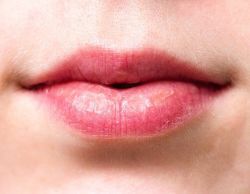Hair Fall vs. Hair Loss: What’s the Difference and How Does it Care?

Hair fall and hair loss are standard terms that are often used interchangeably to describe the same thing, but there is a significant difference between the two. Hair fall is a normal physiological process, while hair loss is a more severe problem that requires medical attention. This article will explore the difference between hair fall and hair loss and how to take care of each.
Understanding Hair Fall
Hair fall is a natural process that happens to everyone. We lose between 50 to 100 hairs daily, which is considered normal. The hair follicles go through a growth cycle, and hair falls out as part of the cycle. New hair replaces the old ones, and the process continues.
Some common reasons for hair fall include stress, hormonal changes, nutritional deficiencies, and using harsh hair products. Hair fall is usually temporary and can be reversed with proper hair care.
Causes of Hair Loss
Hair loss, on the other hand, is a more severe problem that occurs when hair falls out and does not grow back. Hair loss can happen due to various reasons, including genetics, medical conditions, and certain medications.
The most common type of hair loss is androgenetic alopecia or male/female pattern baldness. This type of hair loss is hereditary and is more common in men. Hair loss can also occur in women due to hormonal changes, pregnancy, and menopause.
Other causes of hair loss include autoimmune disorders, thyroid problems, iron deficiency, and chemotherapy.
How to Prevent Hair Fall
Preventing hair fall requires good hair care practices. These include:
- Using a mild shampoo and conditioner that is suitable for your hair type.
- Avoid harsh hair treatments like coloring, perming, and hot styling tools.
- Eating a healthy and balanced diet that includes protein, vitamins, and minerals essential for hair growth.
- Reducing stress through exercise, yoga, and meditation.
- Using a wide-tooth comb to detangle hair, especially when wet.
Treating Hair Loss
Treating hair loss requires medical attention. Depending on the cause of hair loss, your doctor may prescribe medications or topical treatments or suggest hair transplant surgery.
Medications like minoxidil and finasteride can help stimulate hair growth and prevent further hair loss. Topical treatments like corticosteroids and anthralin are also used to treat hair loss.
For people with extensive hair loss, hair transplant surgery is an option. The procedure involves removing hair from the back of the head and transplanting it to the balding areas.
When to Seek Medical Attention
If you’re experiencing hair fall that is more than usual, it’s essential to take steps to prevent further hair loss. Your doctor can diagnose the cause of your hair loss and recommend the appropriate treatment. If your hair loss is severe, you should seek medical attention.
Some signs that you may be experiencing hair loss include:
- Noticeable thinning of hair.
- Bald spots or patches.
- Receding hairline.
- Hair falling out in clumps.
- Itching or pain in the scalp.
Conclusion
In conclusion, hair fall and hair loss are two different conditions, and it’s essential to understand their differences. Hair fall is a natural process that can be prevented with good hair care practices, while hair loss requires medical attention. If you’re experiencing hair loss, it’s essential to seek medical attention and get the appropriate treatment. Taking care of your hair is necessary for healthy hair growth, so practice good hair care habits to prevent hair fall and promote healthy hair growth.













